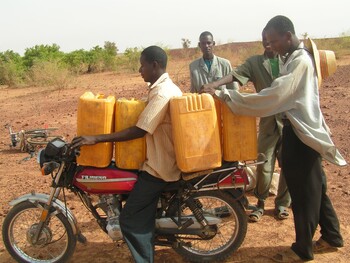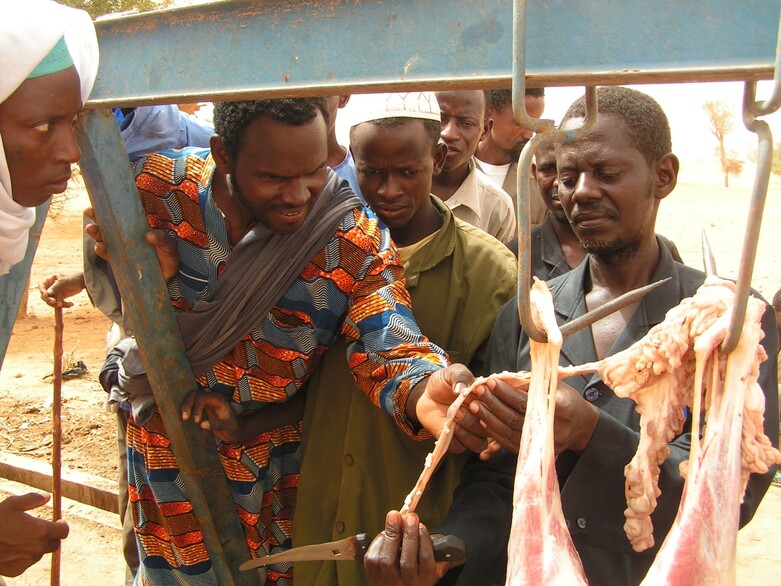Promoting local dairy and meat products
Promotion of the animal value chains milk and meat
-
Commissioning Party
German Federal Ministry for Economic Cooperation and Development (BMZ)
-
Country
-
Lead executing agency
More
-
Overall term
2023 to 2025
-
Products and expertise
Rural development and agriculture
Context
Agricultural areas in Niger are predominantly used for cattle, dromedaries, sheep and goats. With 51 million animals, the country is one of the largest animal producers in Africa.
The majority of the animals are exported as livestock to the West African coastal countries. Meanwhile, the people of Niger obtain the dairy products they need primarily through imports. The main reason for this is the lack of cooperation between producers, dairies and consumer organisations. In many places, livestock herders feed excess milk to calves or simply throw it away.
Meat processing and marketing are also poorly structured. Slaughterhouses rarely comply with international standards regarding hygiene, environmental protection and animal welfare.

Objective
Livestock herders and downstream processing companies increase the market share of local dairy and meat products in Niger.
Approach
The project supports the various occupational groups involved and lawmakers in increasing the market share of local animal products in Niger. Measures include import duties for imported milk, labelling requirements and quality standards that create a competitive advantage. In this context, the project promotes dialogue between lawmakers, livestock herders and processing companies, with a view to reconciling conflicting interests.
At the same time, the project enables livestock herders to improve animal feed, animal health and product hygiene while also safeguarding grazing areas.
It also trains workers such as dairy experts and butchers. Moreover, the project contributes to expanding production by advising large-scale dairies and slaughterhouses. As a result, more high-quality local products are available for consumers in Niger.

Last update: April 2023





